An emergency support scheme to compensate forestry owners for losses incurred due to ash dieback must be included in the proposed forestry programme for 2023-2027.
The call was made at an angry meeting of ash plantation owners in Thurles last Saturday, which heard repeated criticism of the Department of Agriculture’s response to the disease.
Minister for Agriculture Charlie McConalogue and Minister of State Pippa Hackett were also criticised, with some frustrated forestry owners warning they would clear diseased plantations themselves unless the Department fast-tracked felling licences.
The meeting at Semple Stadium, organised by the Limerick and Tipperary Woodland Owners (LTWO), heard close to 6,000 forestry owners have been affected by ash dieback.
Disaster response
Calling for a “disaster response” from the Department, LTWO chair Simon White said emergency action was required from Minister McConalogue.
White said the requirement for a felling licence to clear diseased plantations should be waived as part of an emergency response to the disease. In addition, the meeting called for:
The full cost of removing infected trees to be covered by the State.Plantation owners to be compensated for income losses as a result of the disease.Landowners who opt to replant to be paid re-establishment grants and full forestry premiums for 20 years.Landowners to be allowed to exit forestry without penalties. “The compulsion to replant must be removed,” White said. Is it fair that people in their 70s and 80s are asked to replant?”
Both White and Nicholas Sweetman of Irish Forest Owners said a support package could be funded from the proposed €1.3bn forestry programme for 2023-27.

Jackie Cahill TD.
Local TD Jackie Cahill said he was “extremely disappointed” a compensation package had not been delivered. Describing plantation owners as “entirely blameless”, Cahill claimed many had seen their pension pots “go up in smoke” as a consequence of ash dieback.
Farmers threaten to remove diseased trees
Farmers will start removing diseased ash plantations even if they haven’t received felling licences from the Department, plantation owners told the ash dieback meeting.
Some forestry owners complained of waiting two and three years for felling licences for ash plantations that were, as one speaker said, “dying in front of them”.
“I am going to start taking trees out this September whether I have a licence or not,” one farmer told the meeting.
“And the Department can go to hell,” he added.
A further speaker maintained that Department bureaucracy around the issuing of licences was “bringing people to their knees”; while another contributor urged farmers considering forestry to “run a mile from it”, describing the sector as a disaster.
The same speaker said he was definitely “not going to replant” once he finally gets the diseased ash trees removed.
Tipperary forestry owner Mary McCormack summed up the feelings of many plantation owners when she said her experience of ash dieback, and of the associated delays and Department bureaucracy, had left her “disgusted and exhausted”.
McCormack, who has 40ha of ash near Killenaule, was scathing of the Department’s attitude to the problems faced by plantation owners with ash dieback.
“I have been up and down to Dublin meeting the Department and ministers but we are getting nowhere,” McCormack said.
‘Fairy tales’
She said ash plantation owners were not telling “fairy tales or exaggerating about how bad the situation was” for farmers.
“There are no happy stories here today,” she told the meeting.
The Tipperary woman bemoaned the lack of leadership from the Department and Government on ash dieback.
“We don’t have a minister for forestry; we have nobody speaking for us except ourselves and everybody here today,” McCormack said.
“I am not interested in any more projects or reviews or anything,” she added.
“We have to act ourselves. I never promoted breaking the law but I have to get that ash out. I don’t care anymore about these various schemes and everything. I want my land back,” McCormack told the meeting.
Forestry owner Ger Buckley, who has plantations in Tipperary, Waterford, Limerick and Clare, pointed out that growers were facing significant losses where trees have to be taken out.
Buckley cited the example of a 5ac plot that was infected with ash dieback and where he got permission to take the trees out and replace them.
While he got €5,500 to remove the infected ash trees and replant, it actually cost him €7,000 to remove the infected trees and a further €8,000 to replant the plot.
In addition, there were associated costs due to various reports and applications. As a consequence, Buckley estimated that his losses on the 5ac actually totalled €15,000.
Ash dieback and licensing hits
contractors
Getting contractors to remove the dead ash will be a challenge for plantation owners, the Thurles meeting heard.
Tipperary-based contractor Michael Fahey said he had eight forestry harvesting machines but is now down to just three working machines. He has three of the remaining five machines parked and has two of them sold.
“I had no choice,” he told the Irish Farmers Journal after the Thurles meeting.
He said a combination of licensing delays, ash dieback and the effective shutdown of the forestry sector as there is no forestry programme currently in place, has forced him to park up machines and leave staff go.
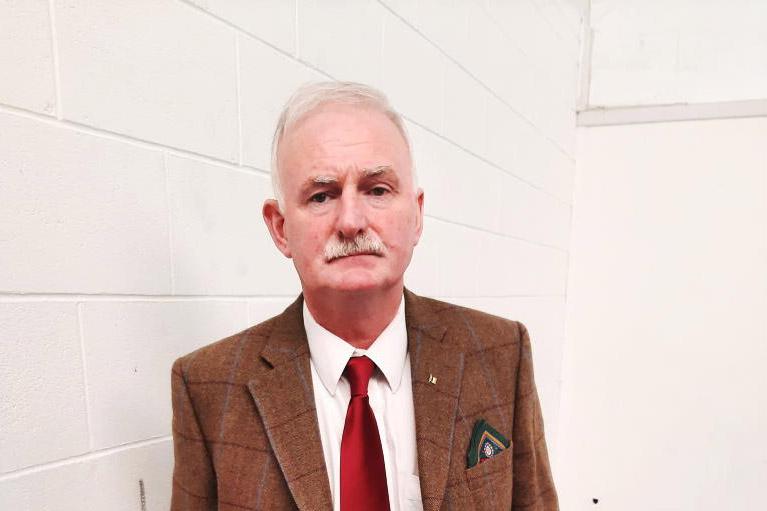
Michael Fahey.
“I will keep two machines going for the rest of the year with the saw mill but I have no private work,” Fahey said.
“It is the same story across the industry,” he added.
Asked what was needed to restore confidence in the forestry contracting business, Fahey said: “We need more certainty, we need the licensing issue sorted out, and three months should be the maximum for [licence] applications.”
An emergency support scheme to compensate forestry owners for losses incurred due to ash dieback must be included in the proposed forestry programme for 2023-2027.
The call was made at an angry meeting of ash plantation owners in Thurles last Saturday, which heard repeated criticism of the Department of Agriculture’s response to the disease.
Minister for Agriculture Charlie McConalogue and Minister of State Pippa Hackett were also criticised, with some frustrated forestry owners warning they would clear diseased plantations themselves unless the Department fast-tracked felling licences.
The meeting at Semple Stadium, organised by the Limerick and Tipperary Woodland Owners (LTWO), heard close to 6,000 forestry owners have been affected by ash dieback.
Disaster response
Calling for a “disaster response” from the Department, LTWO chair Simon White said emergency action was required from Minister McConalogue.
White said the requirement for a felling licence to clear diseased plantations should be waived as part of an emergency response to the disease. In addition, the meeting called for:
The full cost of removing infected trees to be covered by the State.Plantation owners to be compensated for income losses as a result of the disease.Landowners who opt to replant to be paid re-establishment grants and full forestry premiums for 20 years.Landowners to be allowed to exit forestry without penalties. “The compulsion to replant must be removed,” White said. Is it fair that people in their 70s and 80s are asked to replant?”
Both White and Nicholas Sweetman of Irish Forest Owners said a support package could be funded from the proposed €1.3bn forestry programme for 2023-27.

Jackie Cahill TD.
Local TD Jackie Cahill said he was “extremely disappointed” a compensation package had not been delivered. Describing plantation owners as “entirely blameless”, Cahill claimed many had seen their pension pots “go up in smoke” as a consequence of ash dieback.
Farmers threaten to remove diseased trees
Farmers will start removing diseased ash plantations even if they haven’t received felling licences from the Department, plantation owners told the ash dieback meeting.
Some forestry owners complained of waiting two and three years for felling licences for ash plantations that were, as one speaker said, “dying in front of them”.
“I am going to start taking trees out this September whether I have a licence or not,” one farmer told the meeting.
“And the Department can go to hell,” he added.
A further speaker maintained that Department bureaucracy around the issuing of licences was “bringing people to their knees”; while another contributor urged farmers considering forestry to “run a mile from it”, describing the sector as a disaster.
The same speaker said he was definitely “not going to replant” once he finally gets the diseased ash trees removed.
Tipperary forestry owner Mary McCormack summed up the feelings of many plantation owners when she said her experience of ash dieback, and of the associated delays and Department bureaucracy, had left her “disgusted and exhausted”.
McCormack, who has 40ha of ash near Killenaule, was scathing of the Department’s attitude to the problems faced by plantation owners with ash dieback.
“I have been up and down to Dublin meeting the Department and ministers but we are getting nowhere,” McCormack said.
‘Fairy tales’
She said ash plantation owners were not telling “fairy tales or exaggerating about how bad the situation was” for farmers.
“There are no happy stories here today,” she told the meeting.
The Tipperary woman bemoaned the lack of leadership from the Department and Government on ash dieback.
“We don’t have a minister for forestry; we have nobody speaking for us except ourselves and everybody here today,” McCormack said.
“I am not interested in any more projects or reviews or anything,” she added.
“We have to act ourselves. I never promoted breaking the law but I have to get that ash out. I don’t care anymore about these various schemes and everything. I want my land back,” McCormack told the meeting.
Forestry owner Ger Buckley, who has plantations in Tipperary, Waterford, Limerick and Clare, pointed out that growers were facing significant losses where trees have to be taken out.
Buckley cited the example of a 5ac plot that was infected with ash dieback and where he got permission to take the trees out and replace them.
While he got €5,500 to remove the infected ash trees and replant, it actually cost him €7,000 to remove the infected trees and a further €8,000 to replant the plot.
In addition, there were associated costs due to various reports and applications. As a consequence, Buckley estimated that his losses on the 5ac actually totalled €15,000.
Ash dieback and licensing hits
contractors
Getting contractors to remove the dead ash will be a challenge for plantation owners, the Thurles meeting heard.
Tipperary-based contractor Michael Fahey said he had eight forestry harvesting machines but is now down to just three working machines. He has three of the remaining five machines parked and has two of them sold.
“I had no choice,” he told the Irish Farmers Journal after the Thurles meeting.
He said a combination of licensing delays, ash dieback and the effective shutdown of the forestry sector as there is no forestry programme currently in place, has forced him to park up machines and leave staff go.

Michael Fahey.
“I will keep two machines going for the rest of the year with the saw mill but I have no private work,” Fahey said.
“It is the same story across the industry,” he added.
Asked what was needed to restore confidence in the forestry contracting business, Fahey said: “We need more certainty, we need the licensing issue sorted out, and three months should be the maximum for [licence] applications.”






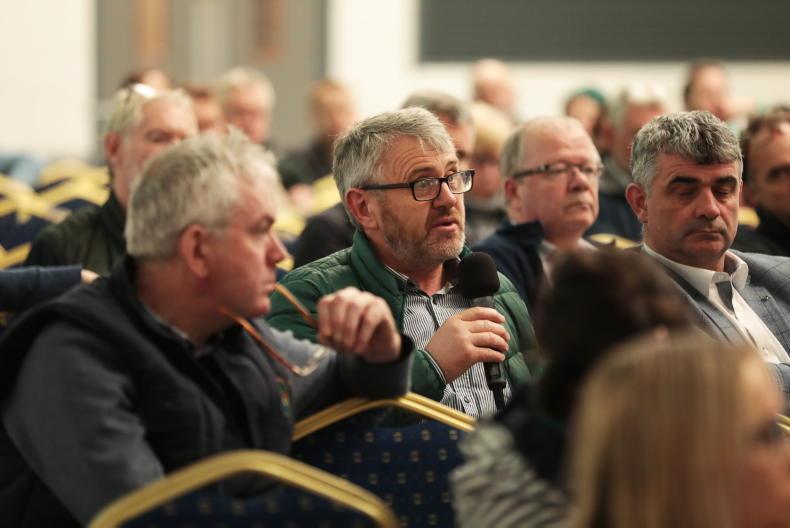
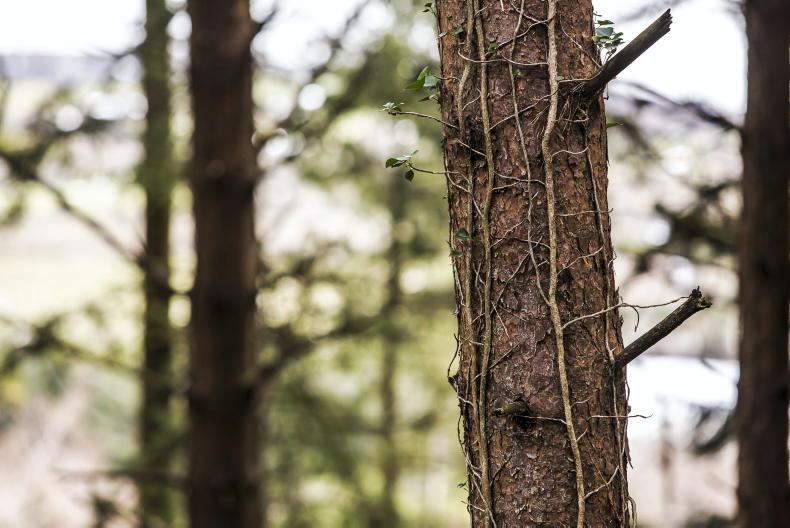

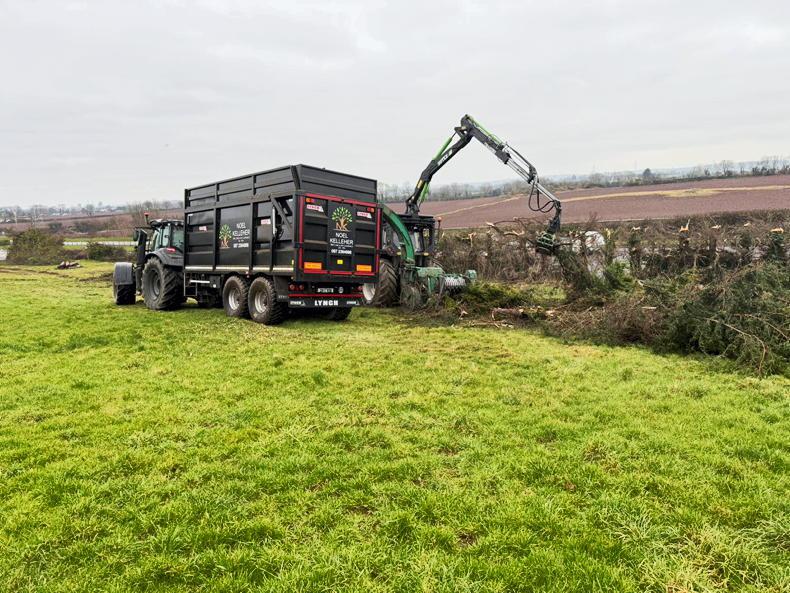
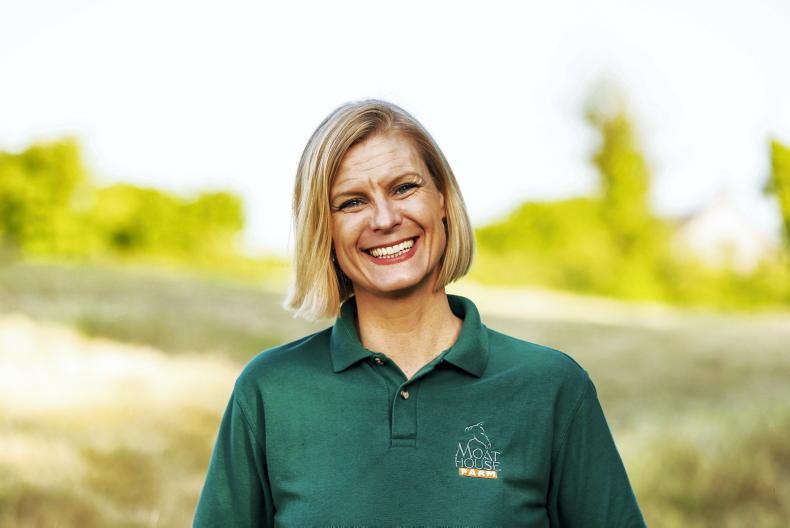

SHARING OPTIONS